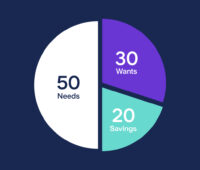
:max_bytes(150000):strip_icc()/multi-ethnic-couple-planning-their-home-budget-1216679280-9c5d6f035994485595a73a53c0d5b258.jpg)
Personal finance is the process of planning and managing your money. It is about setting financial goals and making a plan to achieve them. Personal finance also involves making wise decisions about spending, saving, investing, and debt.
Doing your own personal finance can be a daunting task, but it is important to take control of your finances in order to achieve financial success. Here are some tips to help you get started:
- Create a budget. A budget is a plan for how you will spend your money each month. It is important to create a budget that is realistic and achievable. You can use a budgeting app or create your own budget in a spreadsheet or notebook.
- Set financial goals. Once you have a budget, you can start setting financial goals. Your financial goals should be specific, measurable, achievable, relevant, and time-bound. Some common financial goals include saving for a down payment on a house, paying off debt, or retiring comfortably.
- Track your spending. Once you have a budget and financial goals, it is important to track your spending. This will help you to see where your money is going and to identify areas where you can cut back. You can track your spending in a budgeting app or by keeping a spending journal.
- Automate your finances. One way to make managing your finances easier is to automate them. This means setting up recurring transfers from your checking account to your savings account and investment accounts. You can also set up automatic bill payments.
- Review your finances regularly. It is important to review your finances regularly to make sure that you are on track to achieve your financial goals. You may need to adjust your budget or financial goals as your situation changes.
Budgeting
A budget is a plan for how you will spend your money each month. It is important to create a budget that is realistic and achievable. Here are some tips for creating a budget:
- List your income. Include all of your sources of income, such as your salary, wages, and investment income.
- List your expenses. Include all of your regular expenses, such as rent, food, transportation, and utilities. You may also want to include occasional expenses, such as gifts and travel.
- Subtract your expenses from your income. This will show you how much money you have left over each month.
- Allocate your remaining money to your financial goals. You may want to set up different categories for your savings, investments, and debt payments.
Investing
Investing is a way to grow your money over time. There are many different types of investments, such as stocks, bonds, and mutual funds. It is important to choose investments that are appropriate for your risk tolerance and financial goals.
Here are some tips for investing:
- Start early. The earlier you start investing, the more time your money has to grow.
- Invest regularly. Even if you can only invest a small amount each month, it will add up over time.
- Diversify your portfolio. This means investing in a variety of different types of investments. This will help to reduce your risk.
- Rebalance your portfolio regularly. As your financial situation changes, you may need to rebalance your portfolio to ensure that it still meets your risk tolerance and financial goals.
Saving Money
Saving money is important for a number of reasons. It can help you to cover unexpected expenses, such as a medical emergency or job loss. It can also help you to achieve your financial goals, such as buying a house or retiring comfortably.
Here are some tips for saving money:
- Set financial goals. Having specific savings goals will help you to stay motivated.
- Create a budget. A budget will help you to track your income and expenses and to identify areas where you can cut back on spending.
- Automate your savings. Set up a recurring transfer from your checking account to your savings account each month.
- Pay yourself first. As soon as you receive your paycheck, transfer a certain amount of money to your savings account before you pay your bills or spend any money on other things.
- Live below your means. One of the best ways to save money is to spend less than you earn.
Doing your own personal finance can be a daunting task, but it is important to take control of your finances in order to achieve financial success. By following the tips above, you can create a budget, set financial goals, track your spending, automate your finances, review your finances regularly, invest your money wisely, and save money effectively.














Leave a Reply
Be the First to Comment!
You must be logged in to post a comment.
You must be logged in to post a comment.